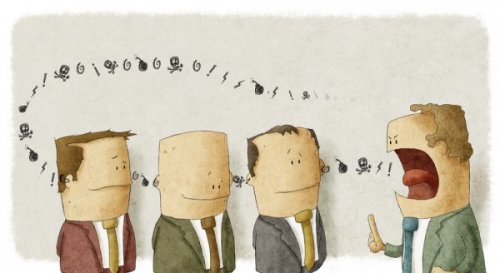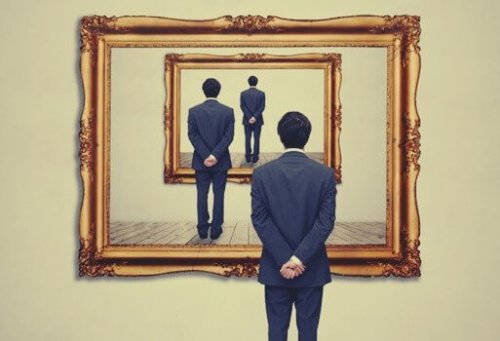The Way You Describe Others Says a Lot About Yourself


Written and verified by the psychologist Valeria Sabater
The way you describe others defines you. The way you label, judge, and value the people around you lets you have a glimpse into your personality, those subtle but always evident brushstrokes of your identity, and even your self-esteem. We undoubtedly see this on a daily basis. We also suffer when people attribute false traits to us.
Let’s admit it: we all make judgments about the people who cross our paths each day. Doing so is necessary to try to control our environment and know, in some way, what to expect. Therefore, this is a perfectly normal and even obvious psychological process, a mechanism that controls the amygdala in its usual purpose of guaranteeing our survival.
“Discretion of speech is more than eloquence, and to speak agreeably to him with whom we deal is more than to speak in good words, or in good order.”
-Sir Francis Bacon-
In fact, in an interesting study conducted at the University of Psychology in New York and published in the Journal of Neuroscience, it was shown that this small brain structure determines whether someone is interesting to us or should be avoided within a matter of milliseconds. In fact, we could say that our brain places a huge importance on first impressions, even though small and interesting nuances exist.
Thus, when the brain makes that very rapid assessment of whether we can trust someone or not, our personality arrives on the scene. Our personality is the one that chooses to approach or avoid the person to see if that first assessment was correct. Our personality will also make derogatory or positive attributions to those who inspire either mistrust or confidence. In essence, your personality articulates, mediates, and determines the way in which you treat others.

The way you describe others shows your true self
A Chinese proverb says that you can sometimes crush a person with just the weight of your tongue. This is a great truth. No one can question that the things we say can do a lot of damage and wreak so much havoc. Most of us see this every day in almost any context: at work, at home, and among friends.
We communicate with others as part of our socialization processes. During these interactions, we should be kind and correct. However, we’re also infected with a habit of criticizing, labeling, and feeling contempt. Many people attribute negative traits to others. It’s almost like an exercise people practice on a daily basis.
“You are what you say.” This is a statement Dr. Skowronski of Wake Forest University in North Carolina made. He investigated personality styles and the attributions that we make. The results were clear: the way you describe others defines you. We are what we say. We’re everything that we infer and project onto those around us.

The dark lens of derogatory labels
Some people don’t want to see. Those who always wear dark-colored glasses for their short-sighted eyes move through a blurred world where it’s best to distrust others. These people get carried away by stereotypes. They belittle, mock, and criticize those who don’t think, feel, or look like them.
If the way you describe others hints at your personality, then those who always use negative and critical labels show their own inner emptiness and lack of self-esteem, where disqualification leaves frustration and unhappiness in its wake.
The rose-colored glasses of positivity
The researchers discovered something very striking in the Wake Forest University study. The people who judged less also demonstrated the most affiliation skills. Thus, those who are characterized by being more positive, optimistic, and with a good self-esteem don’t get carried away by previous assessments and prefer to establish close relationships.
Only when we allow ourselves to set aside labels and inferences that have little to no weight will we be able to increase our chances of creating healthy bonds and relationships with those around us. We can enjoy more solid friendships and more respectful environments with far fewer prejudices.
When we describe others without the weight of mistrust and prejudice, we almost unknowingly allow ourselves to generate greater synergy with the people around us, free from stereotypes and pigeonholing.

To conclude, avoid the excessive use of dark-colored glasses. We often use them to protect ourselves, but it’s always better to remove filters and expand our vision as much as possible. An awake, interested, and humble outlook will always capture many more things than eyes accustomed to living in their own darkness.
This text is provided for informational purposes only and does not replace consultation with a professional. If in doubt, consult your specialist.








